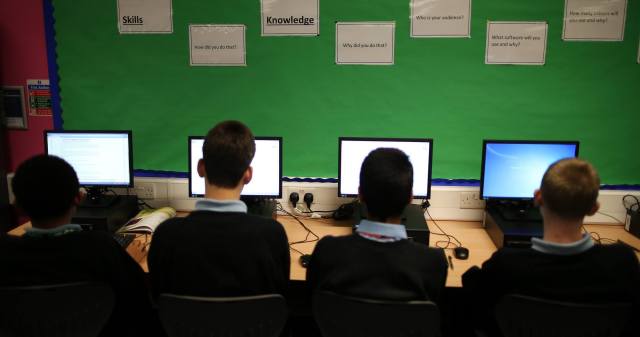
Right now I’m reading The Fifth Risk by Michael Lewis – which is an entertainingly terrifying account of team Trump’s cluelessness about, and disrespect for, the essential functions of government.
The book is reviewed by Howard Husock for City Journal. The reviewer is clearly more sceptical of the virtues of the state than is Lewis, but there are many points of agreement. Certainly, one doesn’t need to be a fan of big government to see the importance of competent government.
Husock expresses concern about a particular threat to administrative capability – not the immediate depredations of the Trump incumbency, but the long-term challenge of finding fresh talent:
“Why… is it proving difficult for government to recruit capable successors to retiring baby-boomer bureaucrats, many of whom are the heroes of The Fifth Risk?”
Looking at the institutions from which top civil servants are recruited, he fears that students are no longer interested in the “non-glamorous” calling to public administration:
“…I saw a shift toward graduates choosing careers with non-governmental advocacy organizations, or toward public-sector careers in which they could be ‘policy entrepreneurs.’ This is a long way from an aspiration to run Medicaid in a way to reduce fraud, or analyze how to keep Social Security solvent.”
In an unrelated article for Brookings, Kathy Hirsh-Pasek and Laurence Steinberg address another problem with the way in which we’re educating the next generation of managers. To put it crudely, a lot of them can’t write:
“Each of us has been teaching and grading undergraduates for more than 35 years… In the past few years, however, something has seemed dramatically different. When they spoke in class, our students were just as knowledgeable as their counterparts a decade ago—perhaps even more so. But the mere thought of a written exam created palpable fear in our classrooms.”
Hirsh-Pasek and Steinberg think it’s a widespread failing:
“When we asked colleagues across the country if they too had noted that their students had trouble writing, they uniformly said, ‘yes.’”
What’s gone wrong? The authors point the finger at No Child Left Behind (NCLB) – the Bush-era back-to-basics education policy. Though they accept that teaching children facts and testing them on their knowledge is important, there are good and bad ways of going about it:
“Those adopted by the states in response to NCLB were largely fill-in-the-blank, one-right-answer tests that never asked students to defend a position or to find different pathways to come to a defensible conclusion.”
Teaching practices are important, but I suspect this goes well beyond the class room. Ours is a culture of diminishing attention spans, of soundbites, social media and immediate gratification. Young minds are formed in a sea of super-abundant, but thoroughly fragmented, information.
To write at length, at least to any useful effect, requires integration not fragmentation. Even a single sentence is a system, with parts that need to relate to one another in some sort of working order.
From my experience of various UK work environments, including government and journalism, I have to say that the generational decline in writing ability is not limited to US universities. And I know I’m not alone in thinking this. Many graduates, with good degrees and otherwise sharp minds, struggle to compose and structure readable English. There are plenty of exceptions, of course, especially among specialists like speechwriters and journalists, but all graduates ought to be able write clearly and competently – especially those destined to run our country.
I’m not arguing that a good writer necessarily makes a good administrator. While most writers would happily participate in the proverbial brewery-based social event, only a subset could be trusted to organise one. Managing words and managing people are separate skills; someone can be brilliant at the latter and also completely illiterate.
Public administration, however, requires excellence in both. Government, indeed any large organisation, is like the nervous system of an advanced organism – highly complex, but entirely useless if the individual components can’t communicate with one another.










Join the discussion
Join like minded readers that support our journalism by becoming a paid subscriber
To join the discussion in the comments, become a paid subscriber.
Join like minded readers that support our journalism, read unlimited articles and enjoy other subscriber-only benefits.
Subscribe